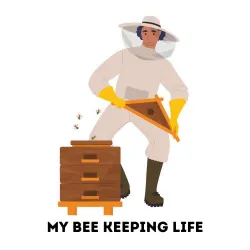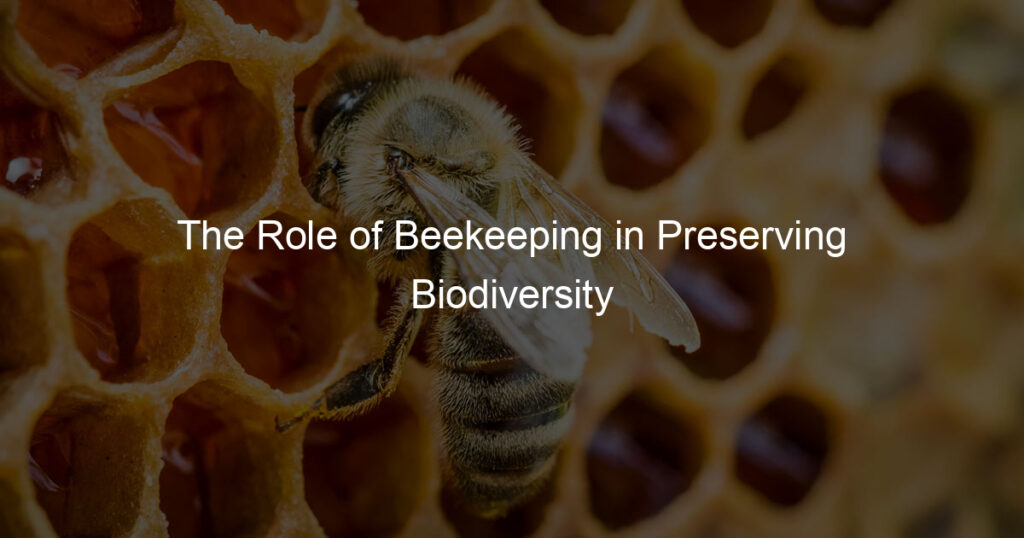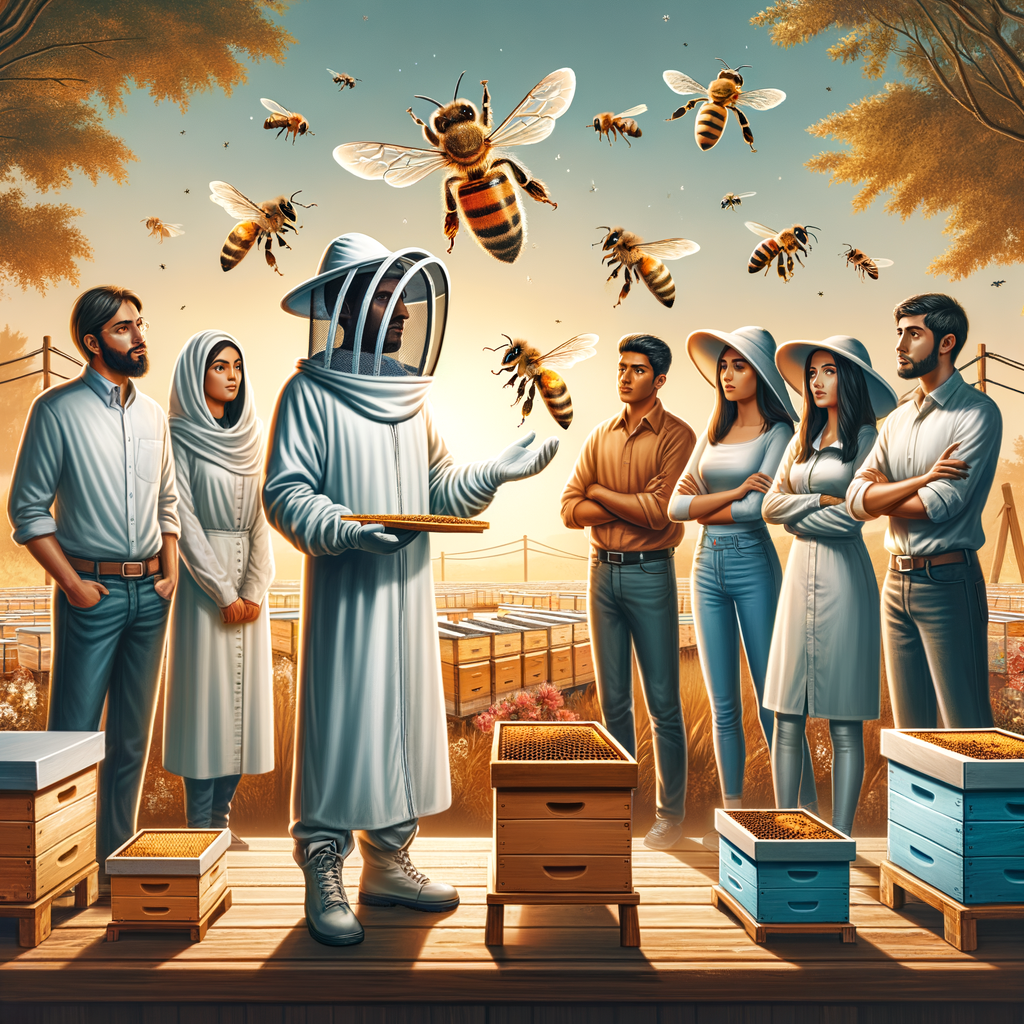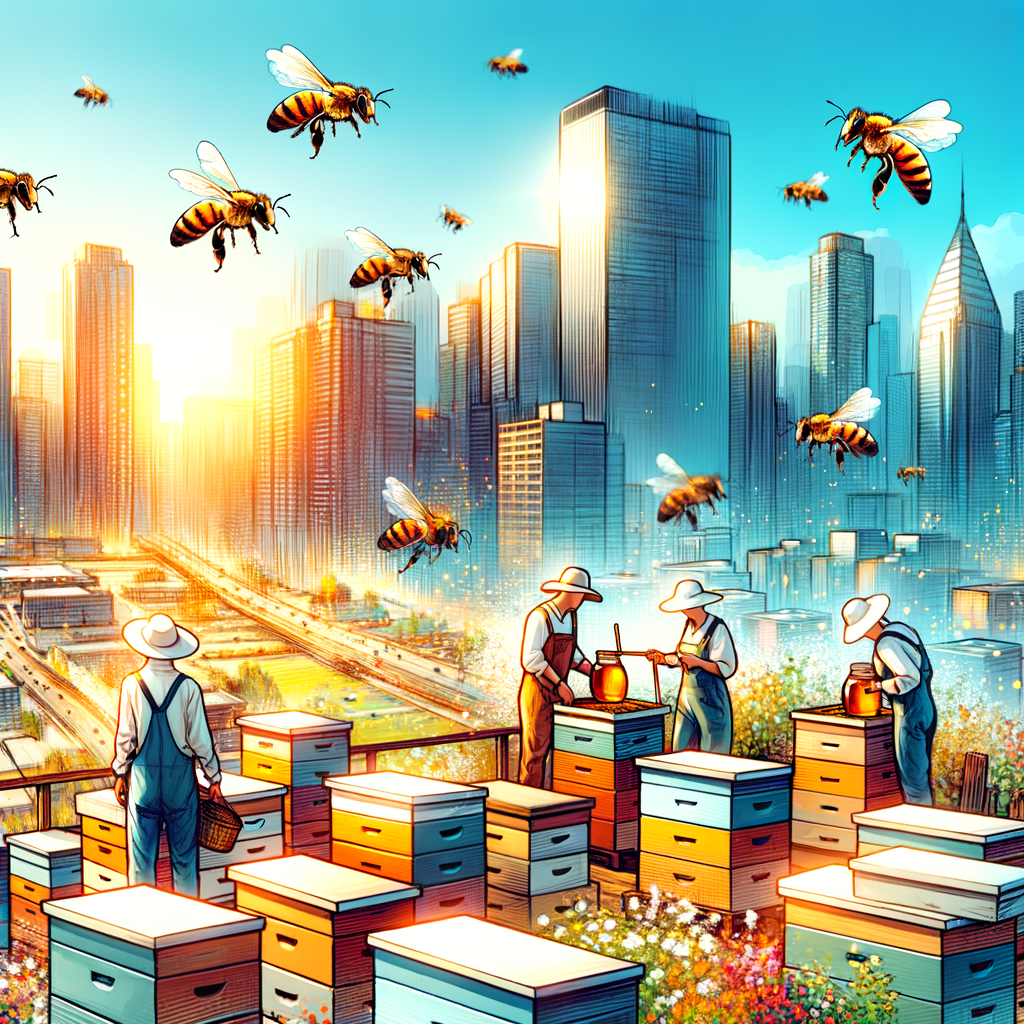Bees are one of the most important pollinators in the world, and their role in preserving biodiversity cannot be underestimated. However, bee populations are declining at an alarming rate due to a variety of factors, including habitat loss, pesticide use, and climate change.
Beekeeping can help to counteract these effects by providing a managed environment for bees to thrive in and by helping to raise awareness about the importance of bees. In this blog post, we’ll explore the role that beekeeping can play in preserving biodiversity.
Why are bees important in preserving biodiversity?
Bees are essential for the preservation of biodiversity due to their role in pollination. Many plant species rely on animals, like bees, to transfer pollen from one flower to another to help plants reproduce.
When bees don’t pollinate these plants, they can’t spread their genetic material and may eventually die off. Therefore, bees have a tremendous impact on preserving biodiversity by helping make sure that our planet’s flora doesn’t become extinct.
It’s easy to see why investments in preserving honeybee populations have become so important across the globe over the last several decades; without the environmental services that our furry little friends provide, we would face serious consequences.
What is the importance of beekeeping in society?
Beekeeping is critical to our society because honey bees are responsible for the pollination of many crops, including fruits and vegetables that make up a large portion of our diets.
Without their help, yields would be drastically lower and we would soon face supply issues. Not only that, but wild areas would suffer greatly as nature depends on these tiny insects’ pollinating skills to increase biodiversity.
As such, not only do we benefit economically from beekeeping, but also ecologically. Bee products like honey are delicious and have even been known to contain medicinal properties too. It’s amazing what these little bees do for us yet most people don’t know about the importance of beekeepers and how their work is helping all of humanity!
How do pollinators maintain biodiversity?
Pollinators play a vital role in the world’s ecosystems, providing keystone services required to maintain healthy biodiversity. Without pollinators, certain species of plants and animals would struggle to survive due to the lack of displacement and fertilization of their seeds and pollen.
Pollination is instrumental for an ecosystem to be maintained in health and balance because it contributes to a diverse coexistence between species through hybridization.
This unrestrained diversity allows for strength and resilience in an environment, where adaptation can take place as pollinators interact with flora from their unique habitats. With pollinators actively promoting biodiversity, humans benefit from increased crop yields, improved animal nutrition, and other valuable agricultural products.
How does beekeeping help the environment?
Beekeeping is a wonderfully beneficial undertaking for the environment, not only because it provides us with amazing honey, but also because of its potential to help improve crop yields.
By introducing bee colonies into an area, beekeepers provide a much-needed pollination service in areas where these types of services may not otherwise be available, encouraging native plant growth and promoting biodiversity.
From there, the hive’s hardworking inhabitants can then head out early in the morning and come back late at night laden with nectar and pollen from wildflowers, continuing the cycle of natural pollination.
This benefit is invaluable to crops since some 90 percent of flowering plants rely on effective pollinators like bees to produce full harvests. The impact of keeping hives cannot be overstated; let us all recognize the importance that our buzzing friends have in sustaining life on this planet!
How do bees impact biodiversity?
Bees are an extremely important element of our environment and have a significant impact on biodiversity. The pollination they provide is essential to the growth, development, and survival of many plant species.
Without bees, those species would not be able to reproduce or replenish fertile areas naturally, leading to that area becoming unable to sustain its animal life which in turn can cause a ripple effect throughout the entire ecosystem.
Not only do bees allow areas to remain balanced, but their nesting and honey production also provides essential living environments for other insects and microorganisms alike.
Unfortunately, we are seeing a depletion in bee populations worldwide as humans look to make use of the land it calls home, resulting in drastic declines in our biodiversity levels. It is clear therefore that without the active engagement of bees working within nature’s system, our environment will soon suffer consequences we may not be able to recover from.
To sum it up
In conclusion, beekeeping plays an important role in maintaining agricultural biodiversity. It can help protect rare species of pollinating bees, increase food security by providing a plentiful source of agricultural pollinators, and produce a range of valuable products that support local livelihoods.
The potential for beekeeping to benefit both nature and people is clear. As we continue to explore ways to restore biodiverse habitats across our globe, we must recognize the invaluable roles that honeybees and other native pollinators can play in these restoration efforts.
Beekeeping is not just a way to produce honey but also an opportunity to conserve wild pollinators while still reaping the economic benefits they bring. Through sustainable practices, education, and social change around the use of pesticides and urbanization, we can ensure that bee populations remain robust and healthy for generations to come.








